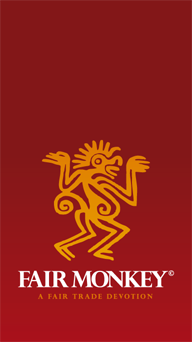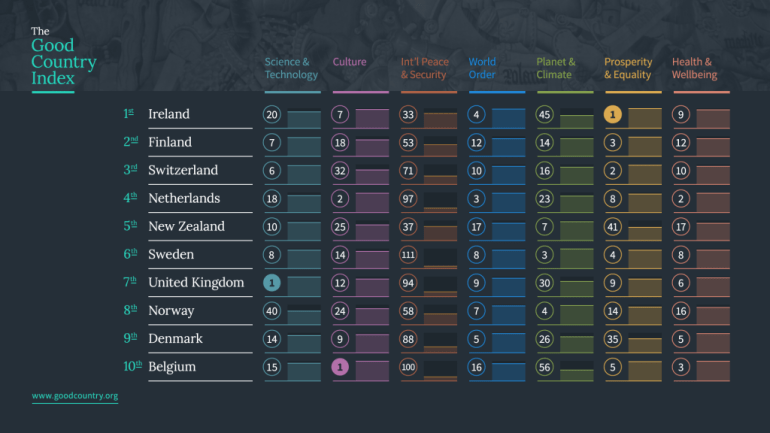The World Fair Trade Day is an initiative of the World Fair Trade Organization (WFTO) that takes place annually on the second Saturday of May. It is a worldwide festival of events celebrating Fair Trade as a tangible contribution to the fight against poverty, climate change and the economic crisis that has the greatest impact on the world’s most vulnerable populations. A third of the world’s population lives on less than 2 USD a day. The global crisis confirms the need for a fair and sustainable economy locally and globally. Trade must benefit the most vulnerable and deliver sustainable livelihoods by developing opportunities for small and disadvantaged producers. Millions of producers and traders, business and policy-makers, supporting organizations and volunteers have contributed to the substantial growth of Fair Trade.
Fair Trade producers, their organizations, local and international marketing organizations, exporters, importers, wholesalers, retailers, volunteers and citizens celebrate Fair Trade in diverse events worldwide on WFTDay. On the frontlines are women, indigenous peoples, artisans, farmers and workers, who give testimony of the benefit of Fair Trade in their lives, a good reason to go out and celebrate World Fair Trade Day!

WFT Day 2015 : 9 May
‘Be an Agent for Change‘ is the theme for 2015 World Fair Trade Day celebration.
Download theme rationale and ideas for WFTDay events and products.
The rationale of the theme
Be is an invitation for participation in the day and not a strident demand for attention. It is not an instruction.
The dictionary defines an agent as a person or thing that takes an active role or produces a specified effect – the doer of an action.
Agent can be an individual – a consumer, a producer, a lobbyist, an event organiser. An agent can also be a company, a retailer, a community, a town.
Importantly an agent can also be a product – a shawl or a bag of coffee for example – and this should be addressed in the communications as these ‘agents’ can play a critical role in raising awareness of the issues and providing a solution through the product itself.
Agent for and not of change. An important distinction – for means the agent can support change, and throughout their actions encourage change but they are not themselves the change.
Positive change in livelihoods of producers, in attitudes of consumers, in trade policies, in the approach of business and retailers.








 Fair Monkey is a cooperative economic association with an aim to secure better living conditions for mainly women producers from small co-operatives in Guatemala, Nepal and South Africa. Established 2006 in Sweden, we import and sell Fair Trade products to about 90 shops in Sweden and in some neighboring countries. A cooperative economic association is ideal, with its democratic approach to ownership, and it makes perfect sense when cooperating with our artisans and producers, since they often are organized in the same way. The products include a range of beautiful and contemporary jewellery and accessories which are all handmade and purchased directly from our producers and artisans. With this, opportunities are created for these amazing artisans to improve living conditions for themselves and their families with the steady income that the handicraft gives, while they proudly share their craftsmanship with the world. To build common trading conditions and simultaneously increase the producers’ craft-pride and self-esteem is an important part of our work.
Fair Monkey is a cooperative economic association with an aim to secure better living conditions for mainly women producers from small co-operatives in Guatemala, Nepal and South Africa. Established 2006 in Sweden, we import and sell Fair Trade products to about 90 shops in Sweden and in some neighboring countries. A cooperative economic association is ideal, with its democratic approach to ownership, and it makes perfect sense when cooperating with our artisans and producers, since they often are organized in the same way. The products include a range of beautiful and contemporary jewellery and accessories which are all handmade and purchased directly from our producers and artisans. With this, opportunities are created for these amazing artisans to improve living conditions for themselves and their families with the steady income that the handicraft gives, while they proudly share their craftsmanship with the world. To build common trading conditions and simultaneously increase the producers’ craft-pride and self-esteem is an important part of our work. generating any income for the work done. Trade is a great way to spread knowledge about the artisans living conditions and highlight the importance of Fair Trade. Part of Fair Monkeys operations, except for the import and wholesales, is giving lectures about the producer’s situation, and what Fair Trade in reality has meant to them.
generating any income for the work done. Trade is a great way to spread knowledge about the artisans living conditions and highlight the importance of Fair Trade. Part of Fair Monkeys operations, except for the import and wholesales, is giving lectures about the producer’s situation, and what Fair Trade in reality has meant to them.  This is especially important for maintaining traditional knowledge and traditions of craftsmanship, which otherwise could easily disappear when it’s not generating any income for the work done. Trade is a great way to spread knowledge about the artisans living conditions and highlight the importance of Fair Trade. Part of Fair Monkeys operations, except for the import and wholesales, is giving lectures about the producer’s situation, and what Fair Trade in reality has meant to them.
This is especially important for maintaining traditional knowledge and traditions of craftsmanship, which otherwise could easily disappear when it’s not generating any income for the work done. Trade is a great way to spread knowledge about the artisans living conditions and highlight the importance of Fair Trade. Part of Fair Monkeys operations, except for the import and wholesales, is giving lectures about the producer’s situation, and what Fair Trade in reality has meant to them.  Since its start in 1995, La Maison Afrique, a Fair Trade organization, supports and cooperates with artisans in Madagascar. Raison d’être is summarized in the logo: “Arts & Crafts from Madagascar with respect for nature, people and tradition. FAIR TRADE”.
Since its start in 1995, La Maison Afrique, a Fair Trade organization, supports and cooperates with artisans in Madagascar. Raison d’être is summarized in the logo: “Arts & Crafts from Madagascar with respect for nature, people and tradition. FAIR TRADE”.
 All are getting ready for the second World Fair Trade Week, to take place in Milan (Italy), from 23-31 May 2015.
All are getting ready for the second World Fair Trade Week, to take place in Milan (Italy), from 23-31 May 2015. The new study opens the door to the answers. “Who’s got the power? Tackling imbalances in agricultural supply chains”, released today in Brussels by the Fair Trade movement
The new study opens the door to the answers. “Who’s got the power? Tackling imbalances in agricultural supply chains”, released today in Brussels by the Fair Trade movement Mifuko means pocket in the Swahili.
Mifuko means pocket in the Swahili.





